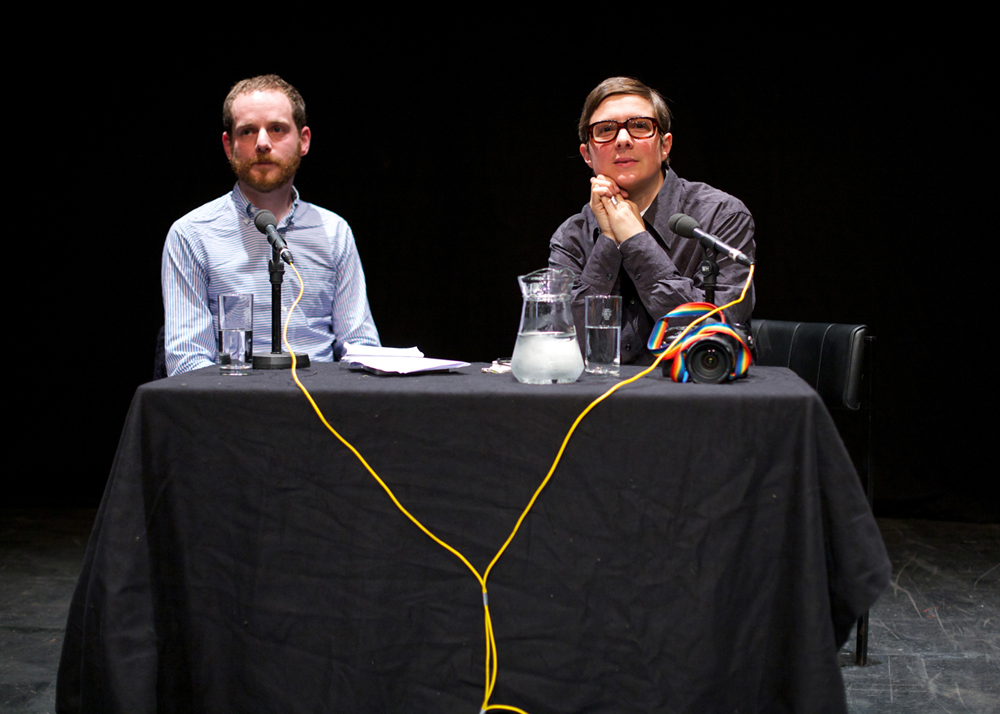Comrades of Time
Comrades of Time
Seven women recite monologues composed from speeches, letters and essays from 1916-1941, written by architects, writers, philosophers and political organizers from the vibrant years of the Weimar Republic as a kind of cultural echo: an experience of historical times as they are brought to the present.
ReadWho
Andrea creates image and text based installations, using both fiction and documentary strategies: often restrained, they have a sort of rich calmness to them, that draws you into a consideration of layers upon layers of thought or meaning; a calmness that leads to a considered, embodied thinking on concepts such as national identity, gender and class.
What
“To be contemporary means to be “with time” rather then “in time.” “Contemporary” in German is “zeitgenössisch.” As Genosse means comrade, to be contemporary, zeitgenössisch thus can be understood as being a comrade of time — as collaborating with time, helping time when it has problems, when it has difficulties.” —Boris Groys
The title of the “Comrades of Time” is a reference to a text by the art critic and media theorist Boris Groys. In this performed version of “Comrades of Time”, seven New York women recite monologues composed from speeches, letters and essays from 1916-1941, written by Helene Stöcker, Rosa Luxemburg, Alfred Döblin, Elisabeth Sussmann, Walter Benjamin, Alice Salomon, Sigmund Freud, George Grosz.
Why
At our recent Copying Without Copying event in Glasgow, Andrea spoke about a notion of what we might call “cultural memory”. Activated by a notion of echo or reverb: sound is present but travels away from us, but its presence can be re-heard when something is placed in it’s way that reflects it back to us. In a similar manner, history is always present, and an object or encounter placed appropriately can allow us to hear it as such, reflected back from a distance.
The Weimar Republic, which reverberates like an echo throughout this performance, was an era of a collectively awakening imagination in all parts of society. Through this notion of echo, a space of reflection is set up where an individual internalisation of historical and political knowledge takes place and the experience of historical times is brought to the present.
Kinds of listening involved
Cultural Memory – to hear the echo of history within ourselves.
Speech Act – to address someone, (and to imagine how they hear you).
Documentation
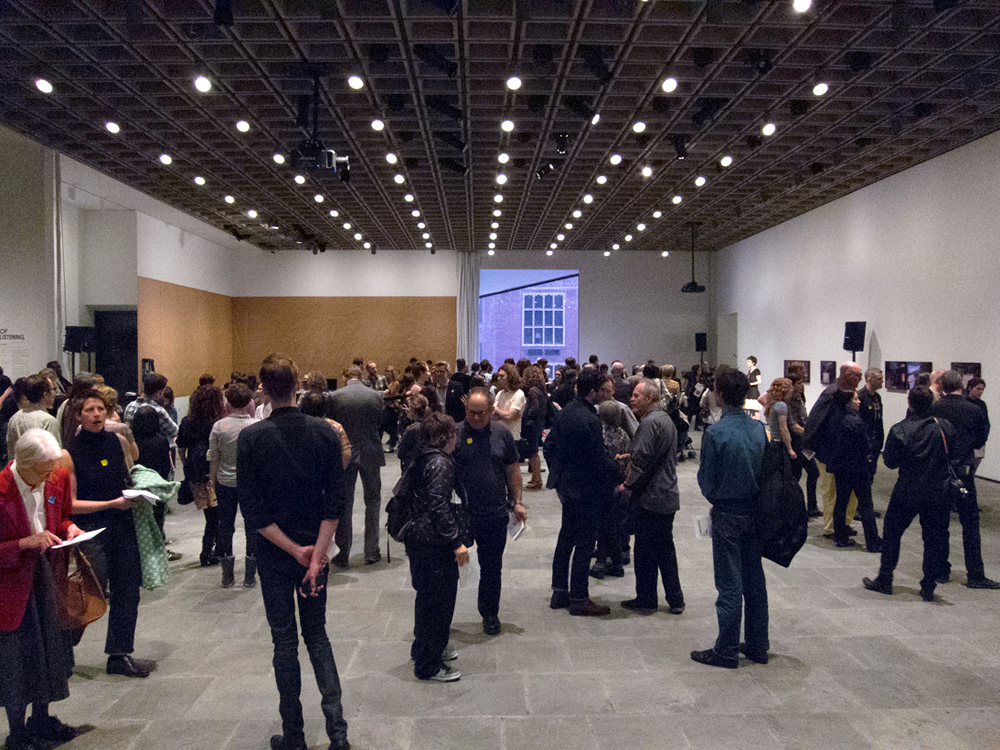
▴ Credit: Bryony McIntyre
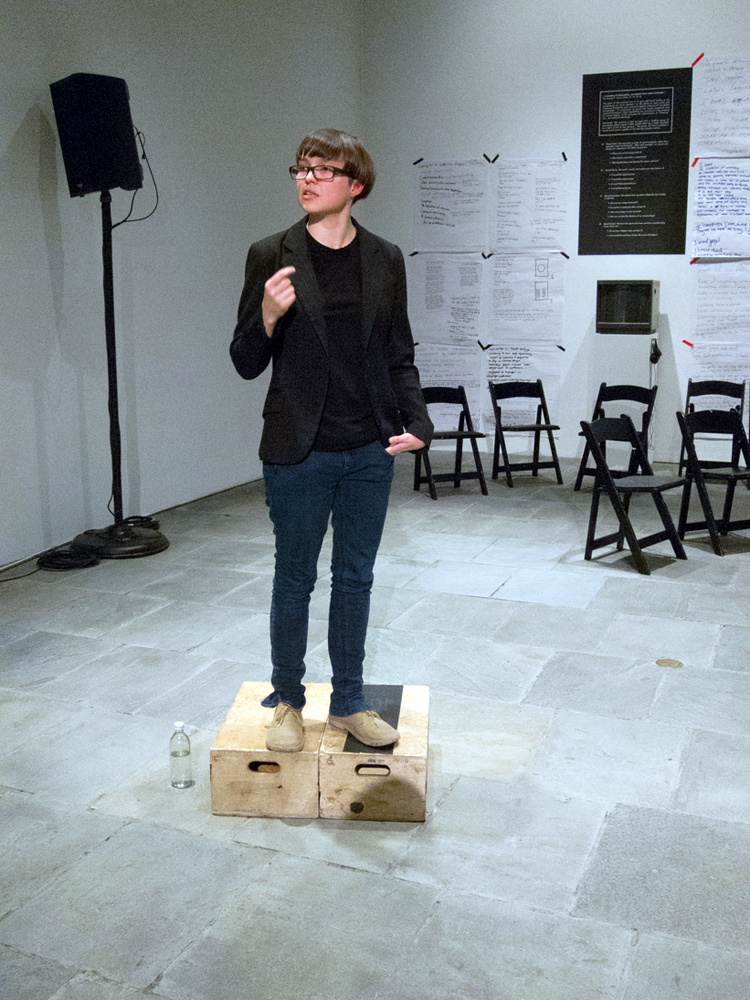
▴ Credit: Bryony McIntyre
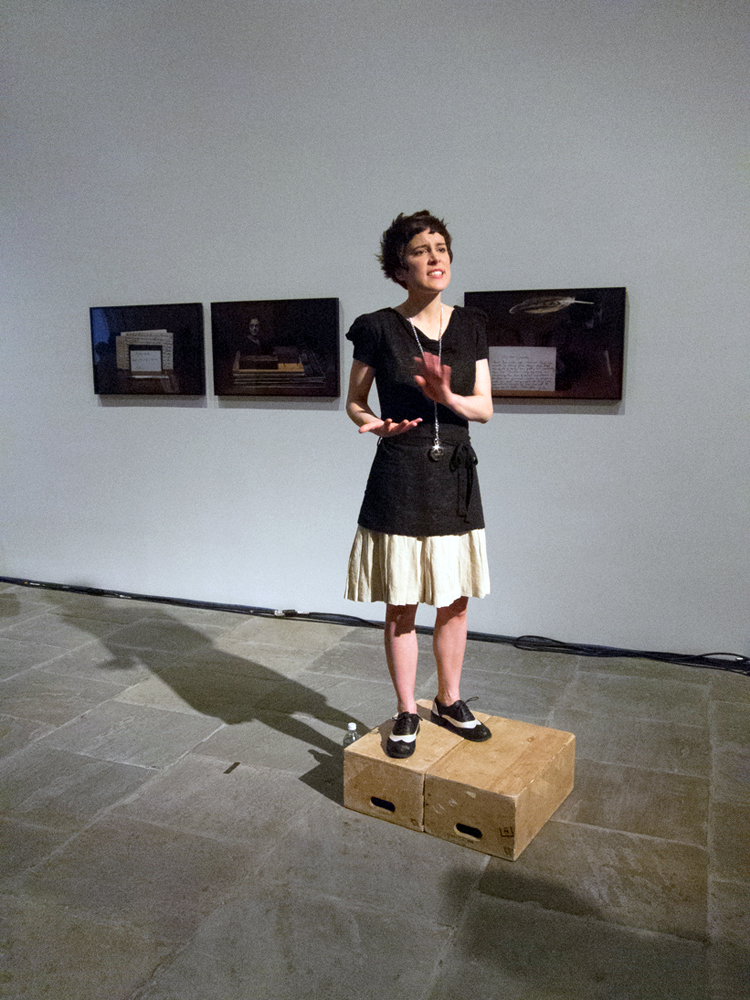
▴ Credit: Bryony McIntyre
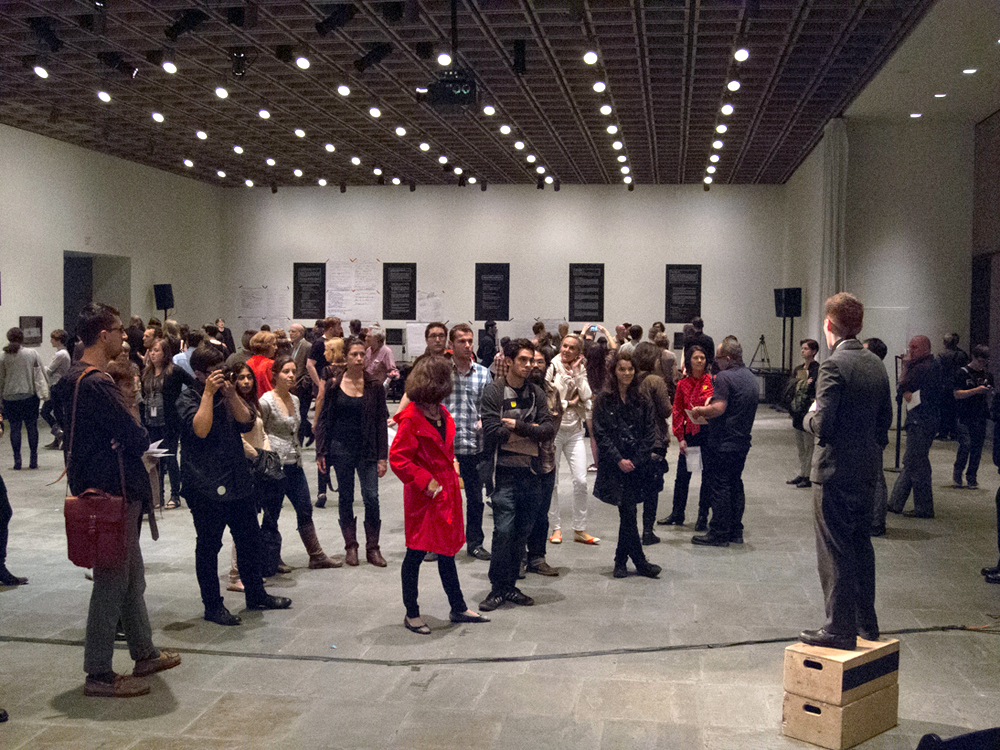
▴ Credit: Bryony McIntyre
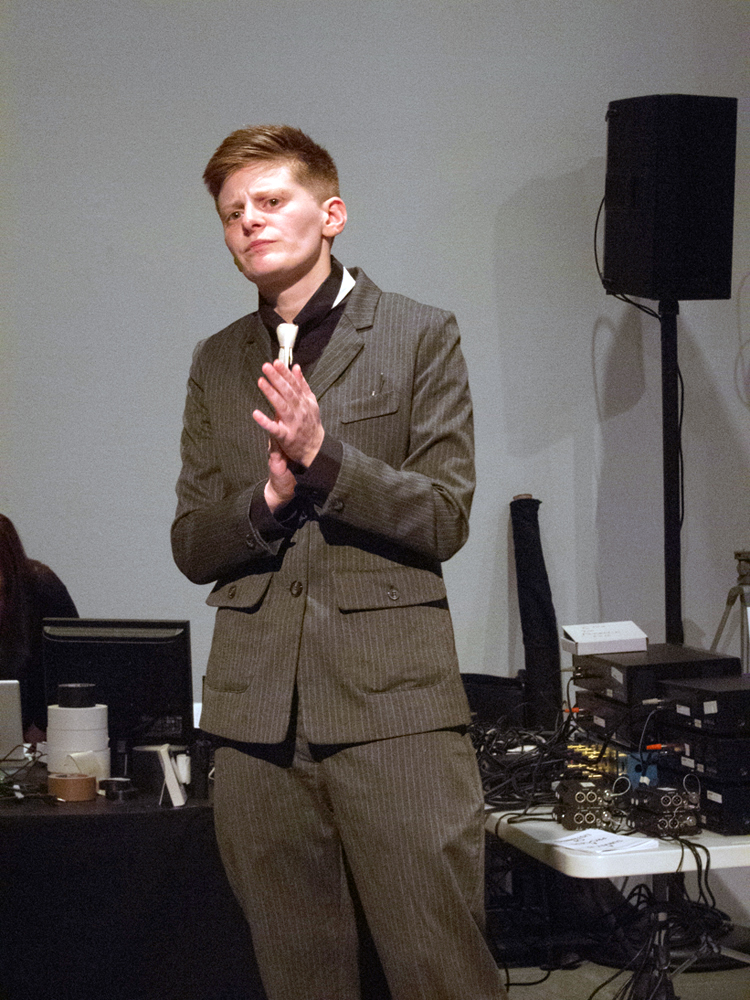
▴ Credit: Bryony McIntyre
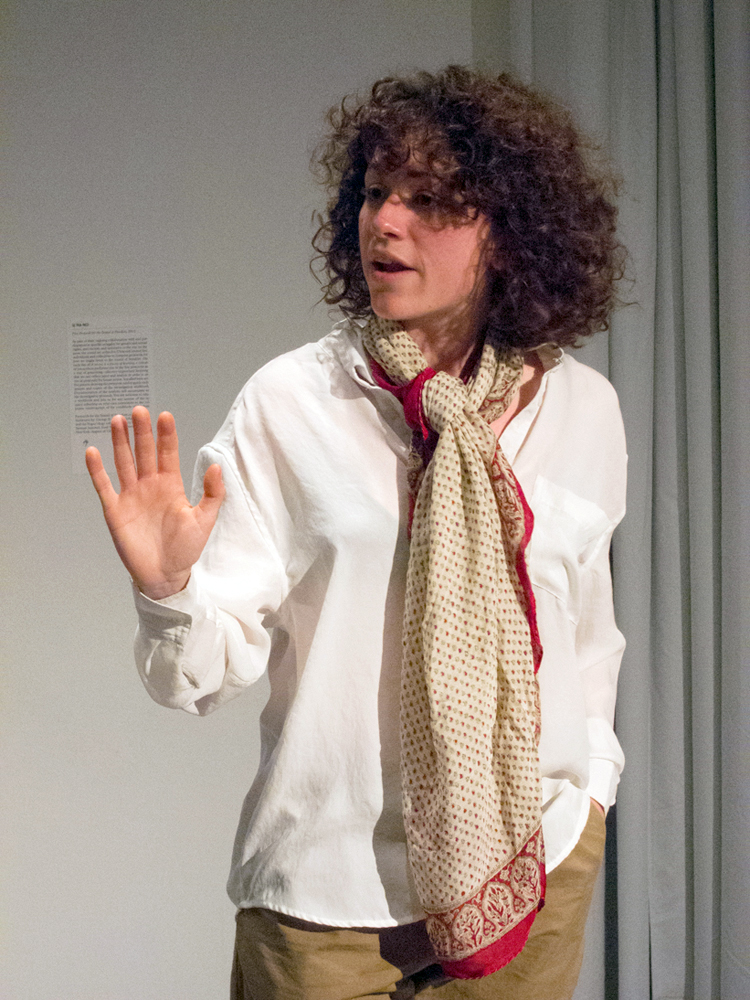
▴ Credit: Bryony McIntyre
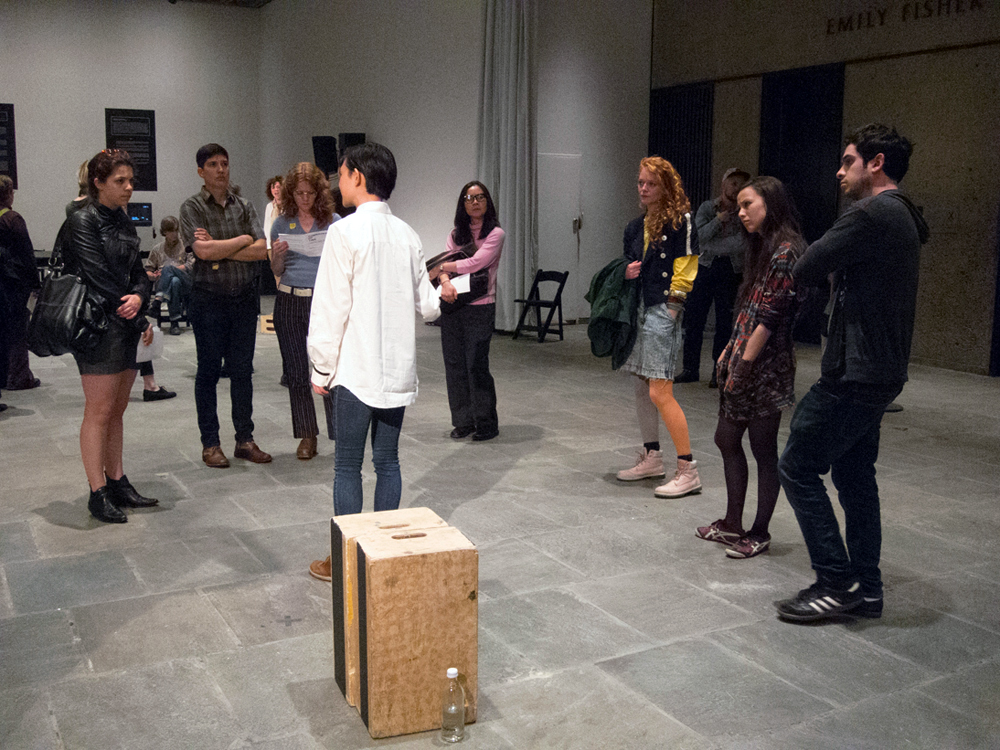
▴ Credit: Bryony McIntyre
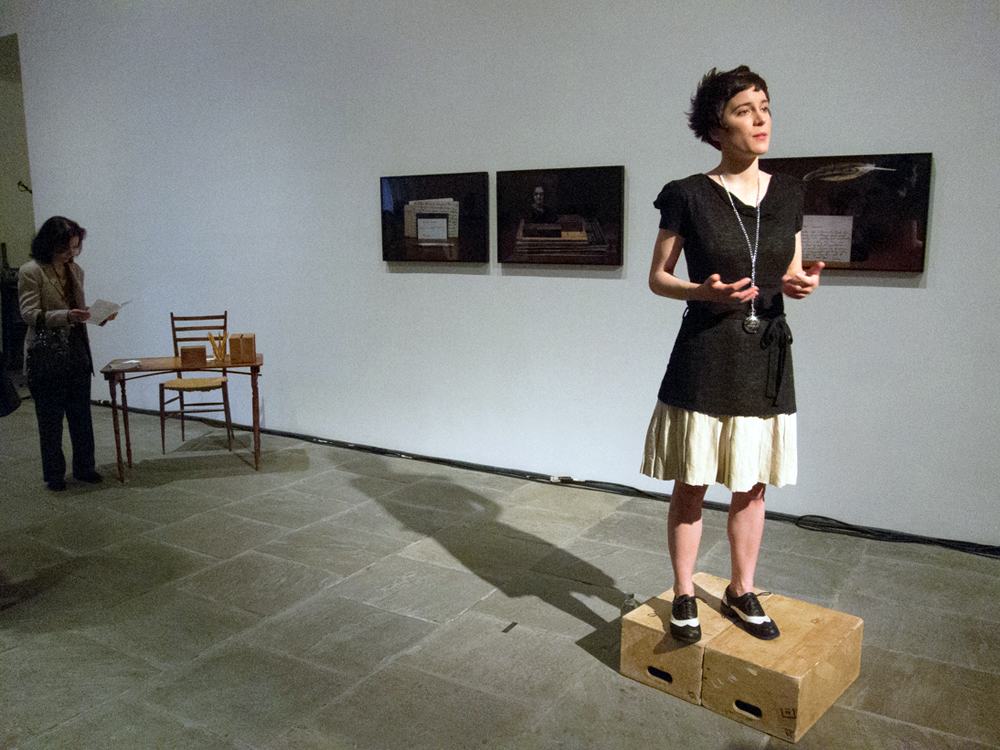
▴ Credit: Bryony McIntyre
Artists
